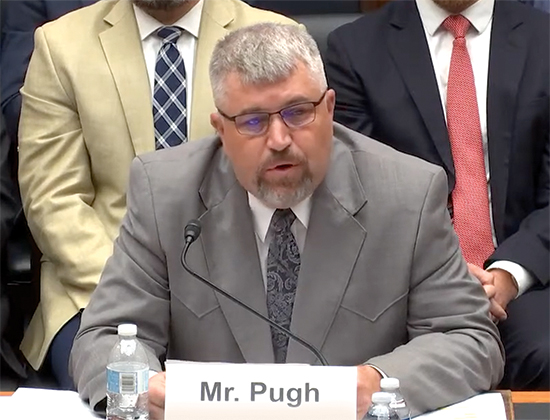OOIDA’s Concerns in Congressional Testimony
During a testimony before Congress regarding the regulatory agenda of the U.S. Department of Transportation, OOIDA’s Executive Vice President, Lewie Pugh, expressed strong viewpoints. With two decades of experience as a truck driver, he criticized the current regulatory framework, describing it as “dysfunctional” and preferential towards compliance and technology rather than practical solutions for enhancing the trucking profession and improving safety.
Pugh remarked that although compliance rates with numerous regulations are at an all-time high, many stakeholders—including large motor carriers and bureaucrats—resist modernizing or eliminating unnecessary rules, opting instead to impose further impractical regulations on American truckers.
In response, he highlighted recent proposals by regulators and lawmakers, such as requiring speed-limiting devices on trucks, implementing side underride guards, and significantly increasing minimum liability insurance for trucks. Pugh urged a reevaluation of regulatory approaches that prioritize the insights of professional truck drivers, as the Owner-Operator Independent Drivers Association believes excessive regulations deter safe and experienced drivers from remaining in the industry, thereby compromising safety and disrupting supply chains.
Pugh further elaborated on how truckers need regulations that align with their realities and industry changes. He called for Congress and the DOT to make trucking a more attractive and sustainable career by valuing the input of those who work in the field. He recommended improving entry-level driver training, ensuring broker transparency, and removing the longstanding overtime exemption for motor carriers.
Pugh emphasized that OOIDA is not anti-regulation. On the contrary, they support regulations grounded in solid research that address vital industry needs. For years, they have advocated for better training standards, broker transparency, and accuracy in safety ratings to ensure well-prepared truck drivers.
During the hearing, critical topics included proposals for speed limiters, automatic emergency brakes, and the trend toward electric and autonomous trucks. For instance, discussions surrounding the FMCSA’s speed limiters revealed safety concerns about creating dangerous speed differentials between vehicles on highways.
Pugh also expressed skepticism about automatic emergency braking systems and electric trucks. He argued that the current infrastructure and technology are insufficient for transitioning to electric trucks, which he believes would significantly harm the industry, limiting how much freight can be hauled. He emphasized the need for careful consideration and regulatory transparency for autonomous vehicles, calling for mandatory performance data reporting to ensure public safety and awareness.


